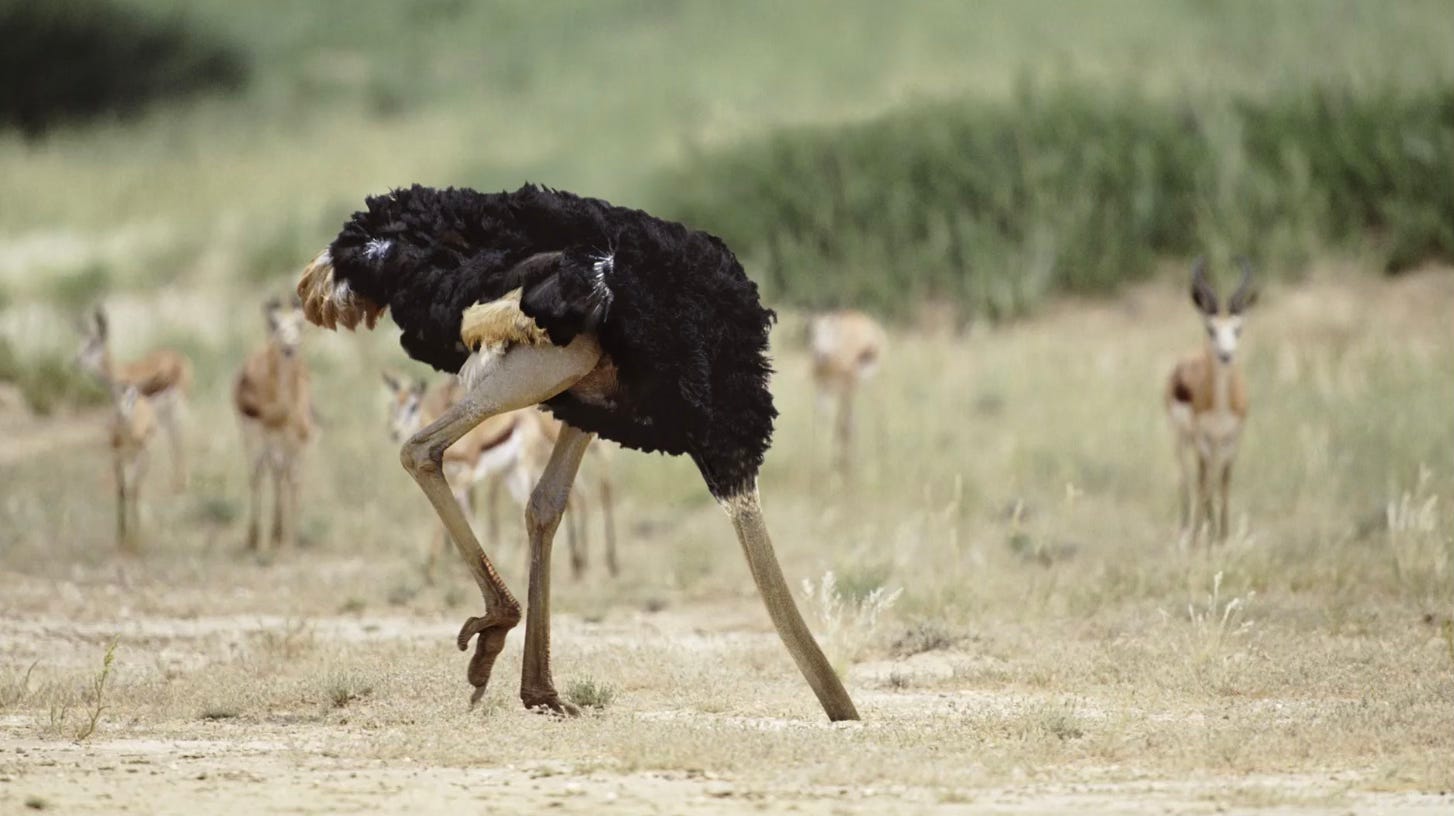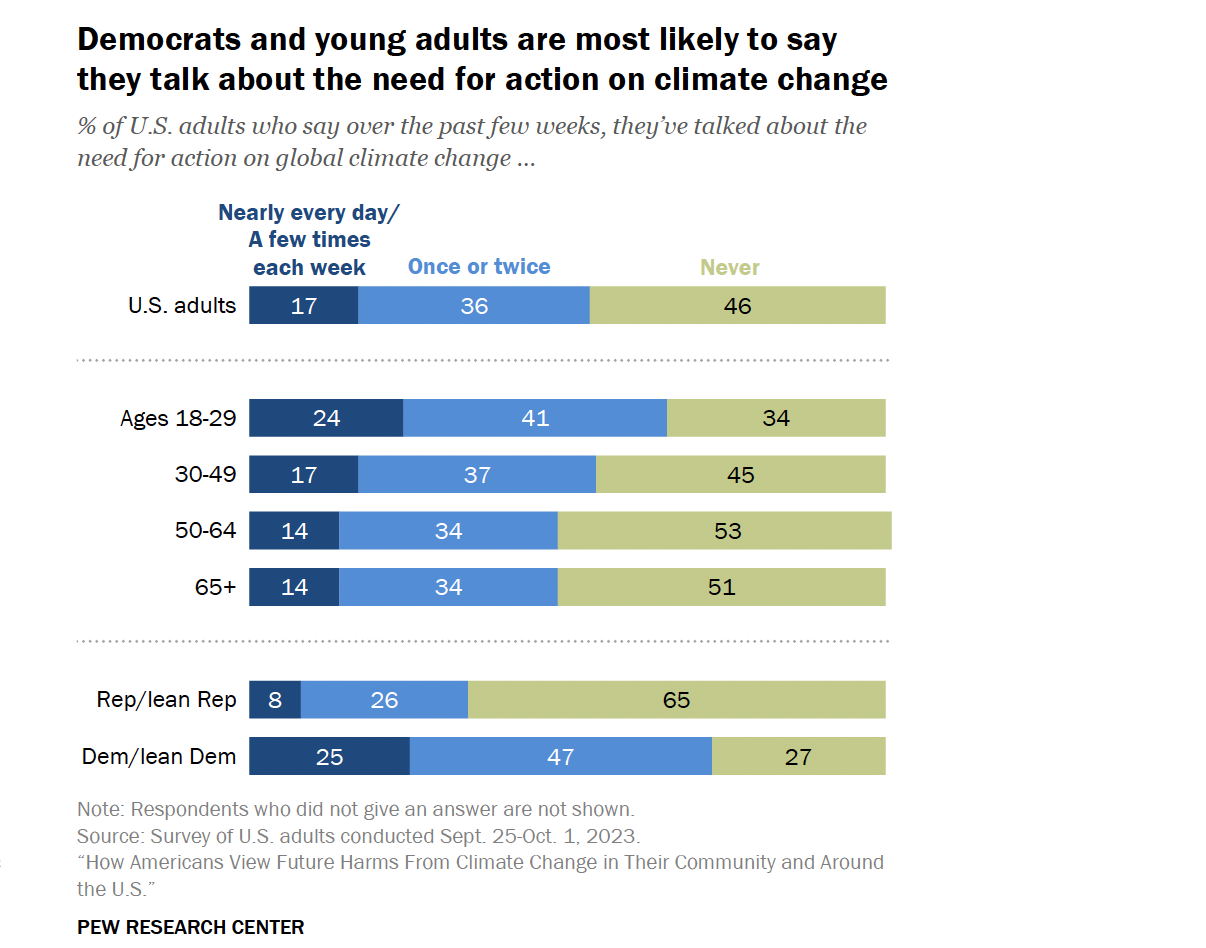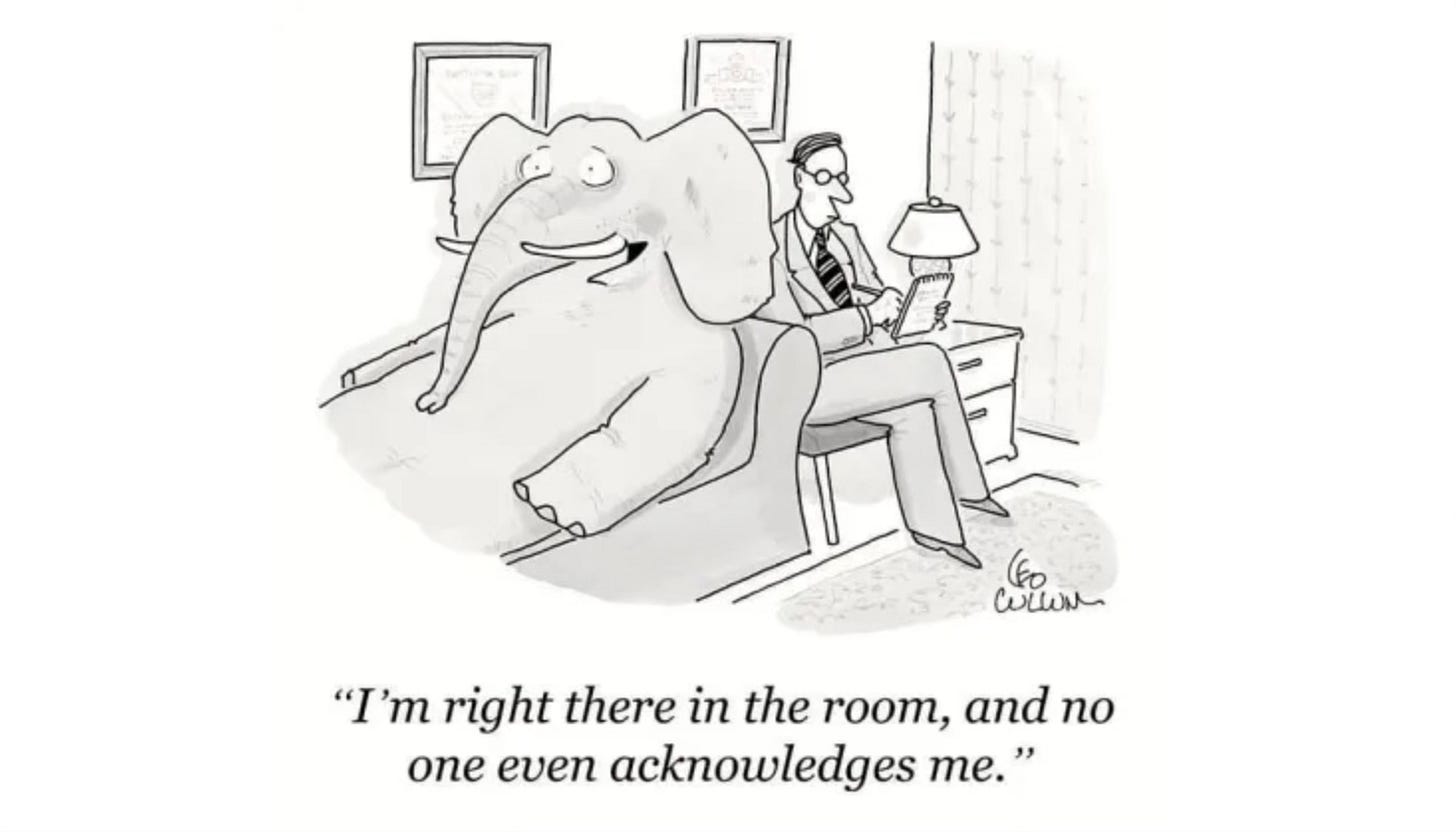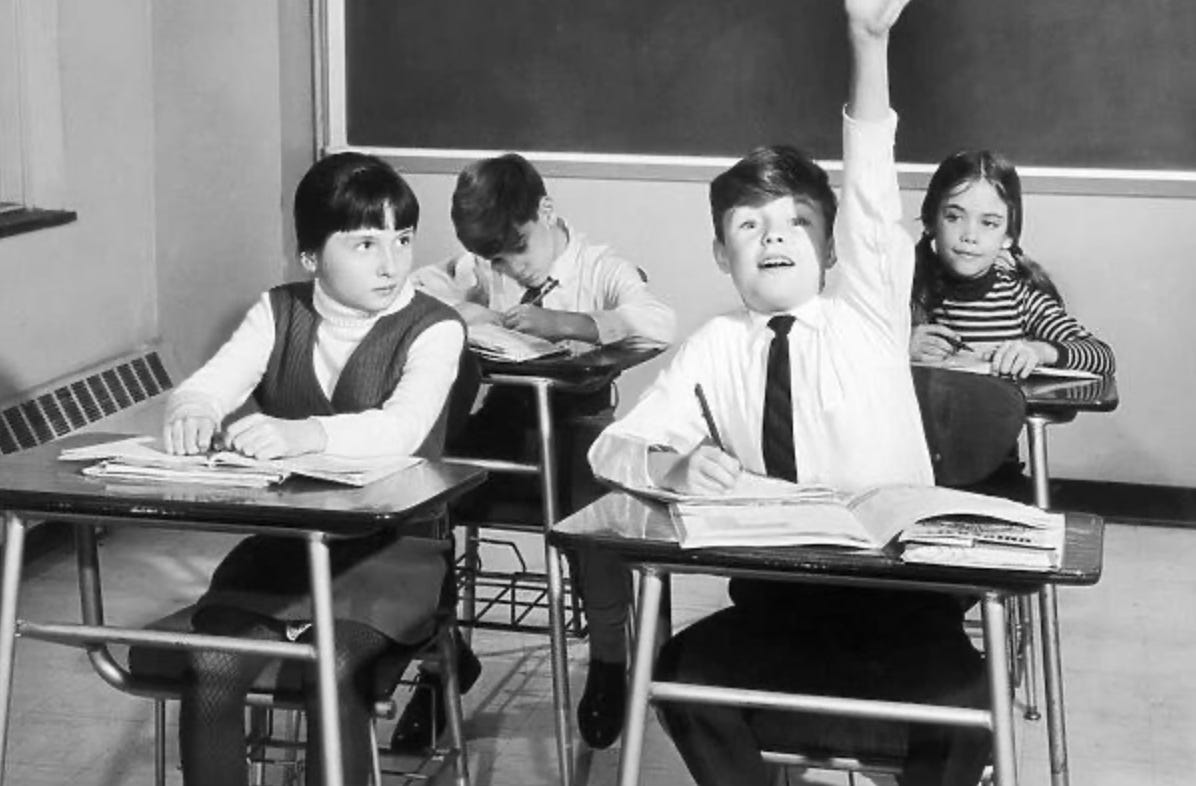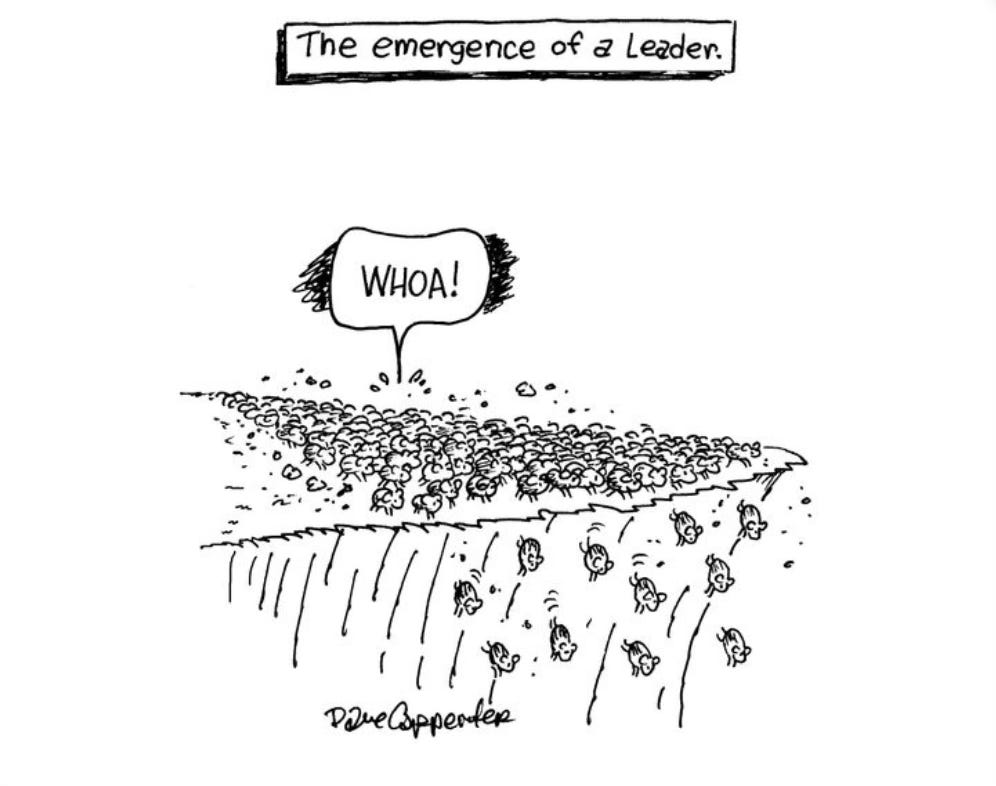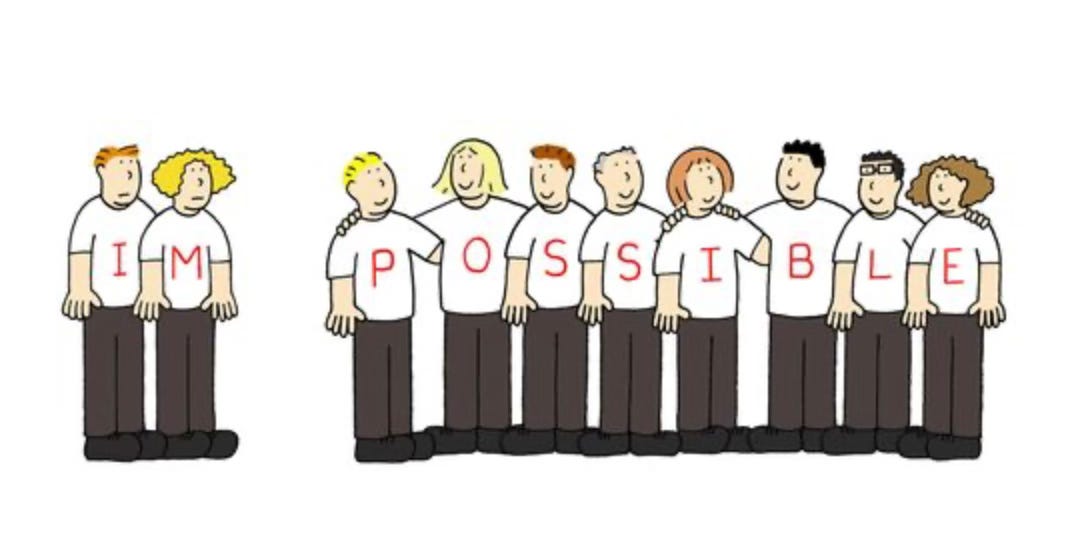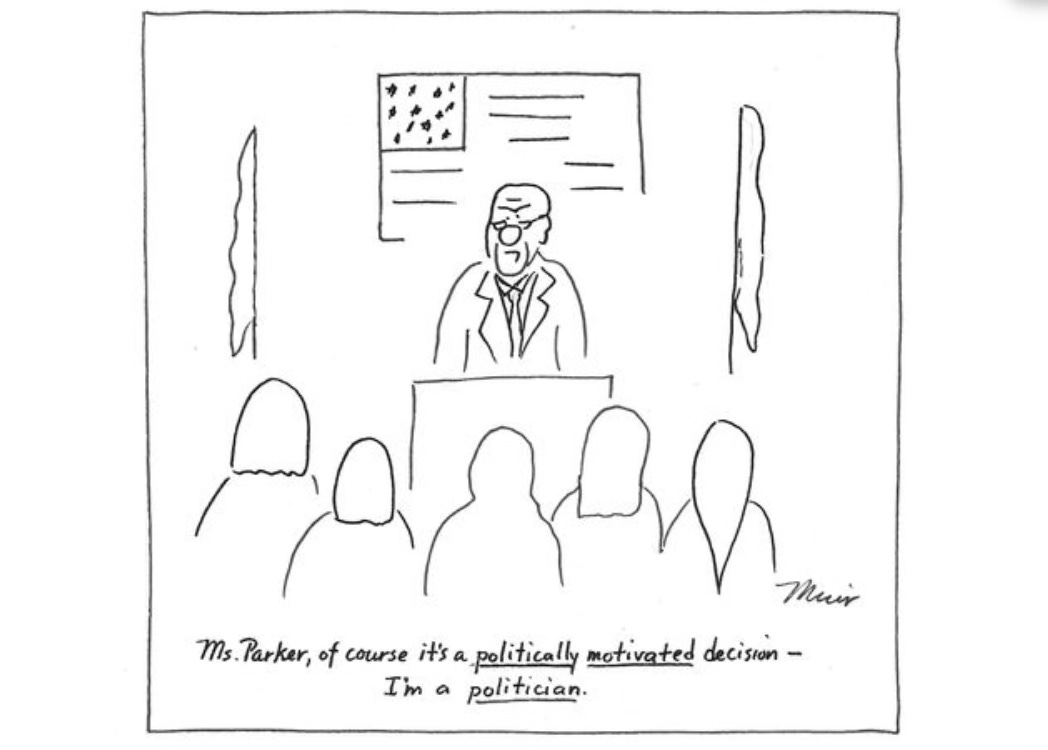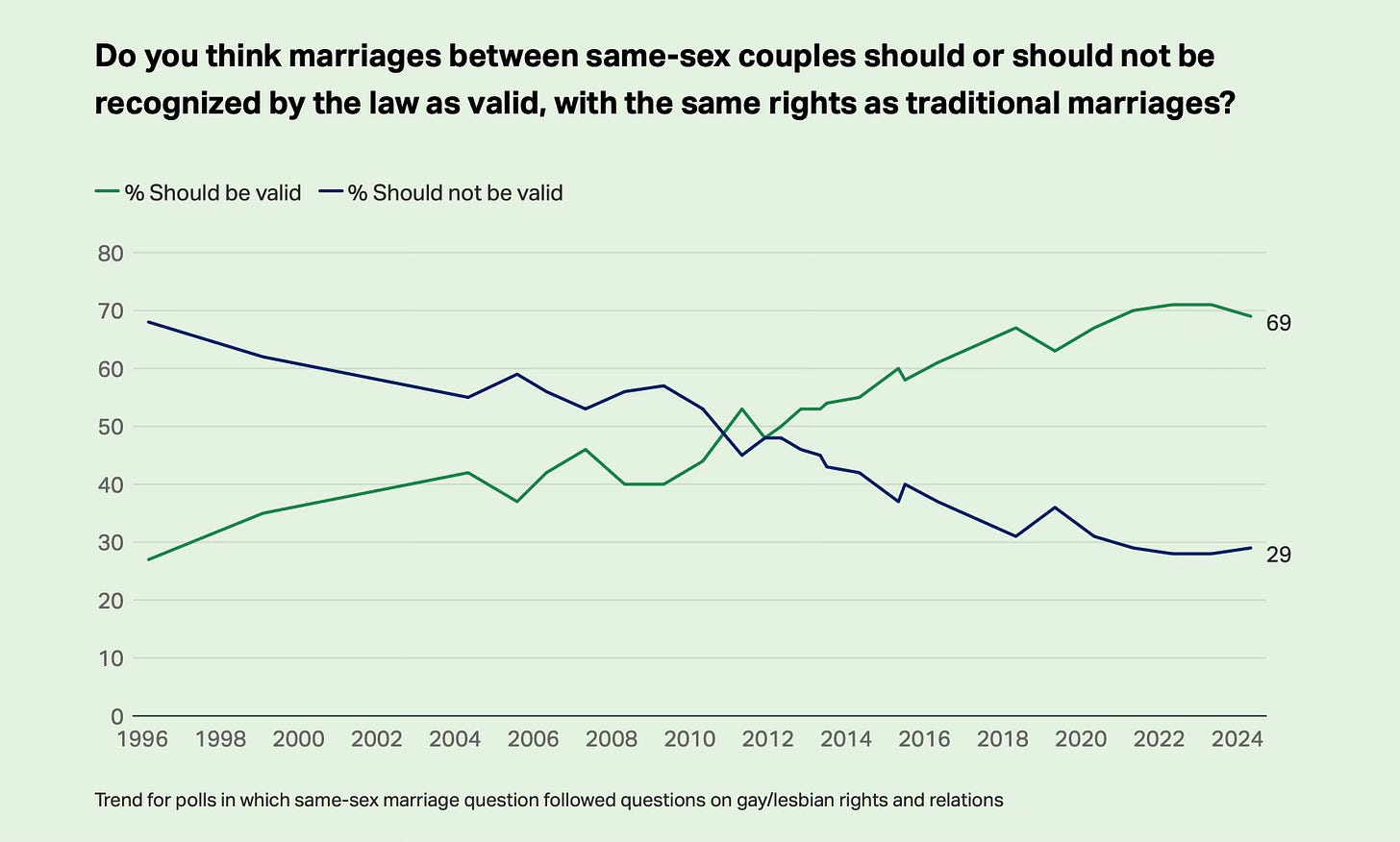We’ve seen that many young people are overwhelmed by the polycrisis.1 On top of the ecological crisis, they’re bewildered by seeming adult obliviousness to the gravity of the problem, and misled into following those cues to stick our collective heads in the sand.2 There are of course many ways for us to stop just being part of their problem, and to start being part of its solution.
“Do ostriches really bury their head in the sand?” BBC Science Focus. Accessed September 14, 2024.
Talking is the first step
The number one thing we can do is the exact thing that most of us are not doing: talk about it.3
In 2023, the number of US adults who reported that they never talked about the need for action on global climate change was about 46%. Another 36% reported that they only talked about it once or twice over the preceding few weeks. In 2023, over 4/5 American adults never or hardly ever discussed climate change!4
What are the benefits of talking?
1. Join the side of young people, making their problem yours
We are social animals, formed over hundreds of thousands of years of evolution to care deeply about what those around us think and do.5
If we were cavemen, and you saw a dead wooly mammoth in the middle of the cave, and everyone else in the cave was ignoring it, you would conclude that it was for some reason important to ignore it too. Talking about it could get you turned out of the cave by the rest of the group!
Source: Leo Cullum. The New Yorker.
So the first reason for talking about the climate crisis is to signal our children that we are not part of the conspiracy of silence: We join with them and climate scientists in recognizing the problem: The dead mammoth is undoubtedly there, it is huge and it smells, and something needs to be done about it, sooner or later.
That step alone can allow some young people around you to break free of fears of social exclusion, think their own thoughts, and come to their own conclusions.
But isn’t talk “cheap”?
You may think, isn’t that too easy? What happened to”Talk is cheap”?
But of course talk is not always easy or cheap. As kids in school, most of us did not raise our hands each time the teacher asked a question. We knew that there was a social cost to speaking up at all when our peers did not, a reputational cost to giving the wrong answer, and a risk of being misinterpreted by the teacher, or by our fellow students.
Source: MediaStorehouse. Accessed September 15, 2024
So it is with speaking up about climate change, especially if we haven’t done much of it before. We may be dinged for raising the issue at all, or for being thought wrong about some thing we say. We may be misunderstood, as being merely interested in “virtue signaling”.
We may even be ignored by those with whom we are most trying to engage, including our very children. If your family is like most, your children will have seen you pick up some enthusiasm for a few days or months, only to drop it and forget about it afterwards. Don’t blame them for expecting this about your climate interest.
All of these things are true and that is why taking this first step is so important. It signals to you and others that it is OK to not know everything, or to be new and not deeply committed yet, or to have a different opinion than others in the room. Bringing a sincere interest in exploring the topic and learning from others defuses the risks.
If you speak up and then do nothing to move the dead mammoth, you may still get some credit, for recognizing its importance as a problem. To retain the respect you gain, and unlock more benefits, be prepared to take further steps down the road on which you’ve started.
2. Start learning about the many ways to surmount the problem
What should you do to become part of the solution to the climate crisis? You will find the answer by continuing to talk!
There are multiple ways to respond productively to the climate crisis. Which one or several of these fit you best, you can discover by reading, by listening—and by talking to potential fellow change makers.
Talk to learn, by finding out what other people can teach you. Talk to teach, by sharing what you already know.
Talk to discover what you really think and believe, once you submit your initial impressions and prejudices to the test of other people’s perspectives, and criticisms.
And if we don’t talk about possible responses, how can we know what others will join us in doing?
Source: Dave Carpenter. Cartoonstock.
3. Tweak your personal trajectory onto a more satisfying path
Given the far-reaching changes already underway due to global heating, almost no aspect of our life will remain untouched by it. That means you, too!
Which effect of the climate crisis touches you most deeply? Is it your concern for some animal population, be it polar bears, Monarch butterflies, or local bees? Is it the threat to a place rich in family memories? Is it the eventual effects on your children and grandchildren? Whatever it is, understand that your concern is part of you, and defines you.
“From caring comes courage” wrote Lao Tzu. “Caring about others, running the risk of feeling, and leaving an impact on people, brings happiness”, wrote Harold Kushner.5
Talk to people who share your area of passion. Start taking action. It is the most effective climate anxiety reducer. It is also the highest impact leadership. Young people seeing the adults around them changing their current trajectories, will know that they too can do that and more. And this all has a multiplier effect. By expanding your mind to understand the climate crisis and what you can do to help young people surmount it, you will find yourself living more deeply and expanding your capacity for care and courage.
Source: Kate Taylor. CartoonStock
4. Add your pebble of pressure to build the political avalanche we need
Talk is also a political tool. It is one of the forces that can be harnessed to bring people together and to get others to follow one’s preferred option.
In a democracy, political leaders only stay in office by promoting policies favored by a majority of voters. Don’t expect politicians to push climate-friendly policies when 4/5 of voters never, or hardly ever, talk about the climate crisis! And remember, humans are “herd animals”, so don’t even expect those 4/5 of voters to talk more about the climate crisis if no-one around them is doing so!
Source: Kevin Muir. CartoonStock.
What we need is an avalanche of voter support for climate action. What we have is 17% of U.S, adults, who speak of the need for climate action “nearly every day or a few times per week”. That’s bad, but far from hopeless.
A similar U.S. minority supported gay marriage in 1996. In just 15 years, in 2011, supporters outnumbered opponents.6 In 2008, the first U.S. state allowed gay marriage. By 2015 it was the law nationwide. 7
Source: “LGBTQ+ Rights”. Gallup.com. Accessed on September 15, 2024.
I know! We need faster action on climate change! But for a radical change like gay marriage, 20 years was extraordinarily fast. Building a similarly broad and deep consensus on climate action may take as long.
The longest journey begins with one step forward. Gay marriage advocates raised and re-raised the issue with whomever would listen, patiently but persistently calling on their fellow family members and citizens to live up to their own ideals. Every year they won the support of another 1% of the population—until they were a majority. And then the politicians had to act.
Start and build the buzz that drives our cause forward. Talk about climate action every day!
Talk is the indispensable first step
In short, by talking regularly about the need for climate action, you push the ball forward along four key dimensions. You
join the side of young people, making their problem yours,
start learning about the many ways to surmount the problem,
tweak your personal trajectory onto a more satisfying path, and
add your pebble of pressure to build the political avalanche we need.
In my next posts, I’ll address how to choose what to talk about, and how to start.
Each of my posts is part of an extended strategy for how to surmount the climate crisis. This evolving strategic analysis is organised by themes, in a separate post, “Posts, organised thematically”, which I invite you to consult.
See my posts, “From climate crisis to polycrisis” and “Waking up on a speeding motorcycle”.
See my posts, “Two views on climate urgency” and “Will the kids save us?”
This is the principal recommendation of Katharine Hayhoe, Chief Scientist of The Nature Conservancy. Her TED talk, “The most important thing you can do to fight climate change”, which includes this recommendation, has over 4 million views.
“How Americans View Future Harms From Climate Change in Their Community and Around the U.S.” By Alec Tyson and Brian Kennedy. Report. Pew Research Center. October 25, 2023.
Both quotes are from BrainyQuote. Accessed September 15, 2024.
“LGBTQ+ Rights”. Gallup.com. Accessed September 15, 2024.
"Same-sex marriage" Wikipedia contributors. Wikipedia, The Free Encyclopedia, Accessed September 15, 2024.


